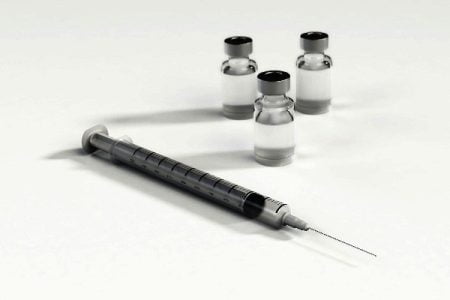What is Hepatitis C?
Hepatitis C is a type of liver disease caused by a virus called HCV or hepatitis C virus. Normally, liver produces a juice called bile which helps in the digestion of food. It also helps in removing toxins from the body. Hepatitis C causes inflammation and scarring in our liver, due to which the organ fails to perform its job. According to a study, almost 3.5 million people in the United States have hepatitis C. Most of the people are unaware that they have the disease because hepatitis C is sometimes asymptomatic. Commonly, hepatitis C spreads through exposure to infected blood, intravenous drug abuse, homosexual sex, HIV virus etc.
Hepatitis C in Men
It has been found that men are less able than women to resist hepatitis C virus infection once they’ve been infected. According to some studies, men have always lower clearance rates (the body’s ability to get rid of the virus) than women. The exact reason for this difference is still unclear to scientists. Some possible factors for hepatitis C in men may include such as:
- The age of person
- Whether he has other infections like HIV
- The route of infection like blood transfusion, sexual contact, or drug abuse
Men are likely to experience hepatitis C virus at higher rates than women. Scientists are not sure about the exact reason. According to a study, approximately 2.1 % of men and 1.1 % of women have hepatitis C in the United States. Similar statistics have been noted in Europe. Besides, men are also more likely to develop severe side effects and liver scarring that occur at a faster rate. Almost 73.6 % of cirrhosis cases in the United States are found in men. Moreover, the condition can progress to fibrosis or scarring 39% faster in men than it does in women. Although researchers do not know exactly why men have more severe side effects and faster disease progression than women, but a possible assumption is that estrogen may have a protective effect in women.
What are the Hepatitis C Symptoms in Men?
Hepatitis is an acute infection that causes an illness with flu like symptoms. Hepatitis C is more common in men as compared to women. Some hepatitis symptoms in men include the following:
- Appetite loss
- Fatigue
- Fever
- Nausea
- Body aches and pains
- Yellow discoloration of the skin and eyes
- Stomach pain
- Muscle soreness
- Diarrhea
- Upset stomach
- Fever
- Dark-colored urine
- Clay-colored stools
- Ascitis
- Spiderlike blood vessels on skin called spider angiomas
Risk Factors
According to the Centers for Disease Control and Prevention (CDC), one of the main risk factors for hepatitis in C in men is having an unprotective (condom less) sex with another man. However, more commonly, hepatitis C is transmitted by using shared needles than through sexual contact. Men who prefer homosexual sex are more likely to get hepatitis C if they:
- Have a history of HIV or sexually transmitted diseases
- Have multiple sex partners
- Have rough sex
Besides, some risk factors also make men more likely to experience liver scarring from hepatitis C. If men with cirrhosis have a liver with excessive scarring, they may experience liver failure also. Some of the risk factors for developing cirrhosis include:
- Being male
- Being 50 or older in age
- Having a history of hepatitis B
- Having a history of nonalcoholic fatty liver disease
- Taking immunosuppressant drugs
- Consuming excess alcohol
How can Hepatitis C be Prevented in Men?
There is no vaccine for hepatitis C virus infection yet, however it is important that men take certain preventive measures to ensure that they do not get the virus. Following preventive measures can help:
- Using condoms during sex
- Never sharing needles
- Stopping drug abuse
- Seeking reputable tattoo and body piercing parlors
- Avoiding multiple sex partners
- Discouraging homosexual sex






